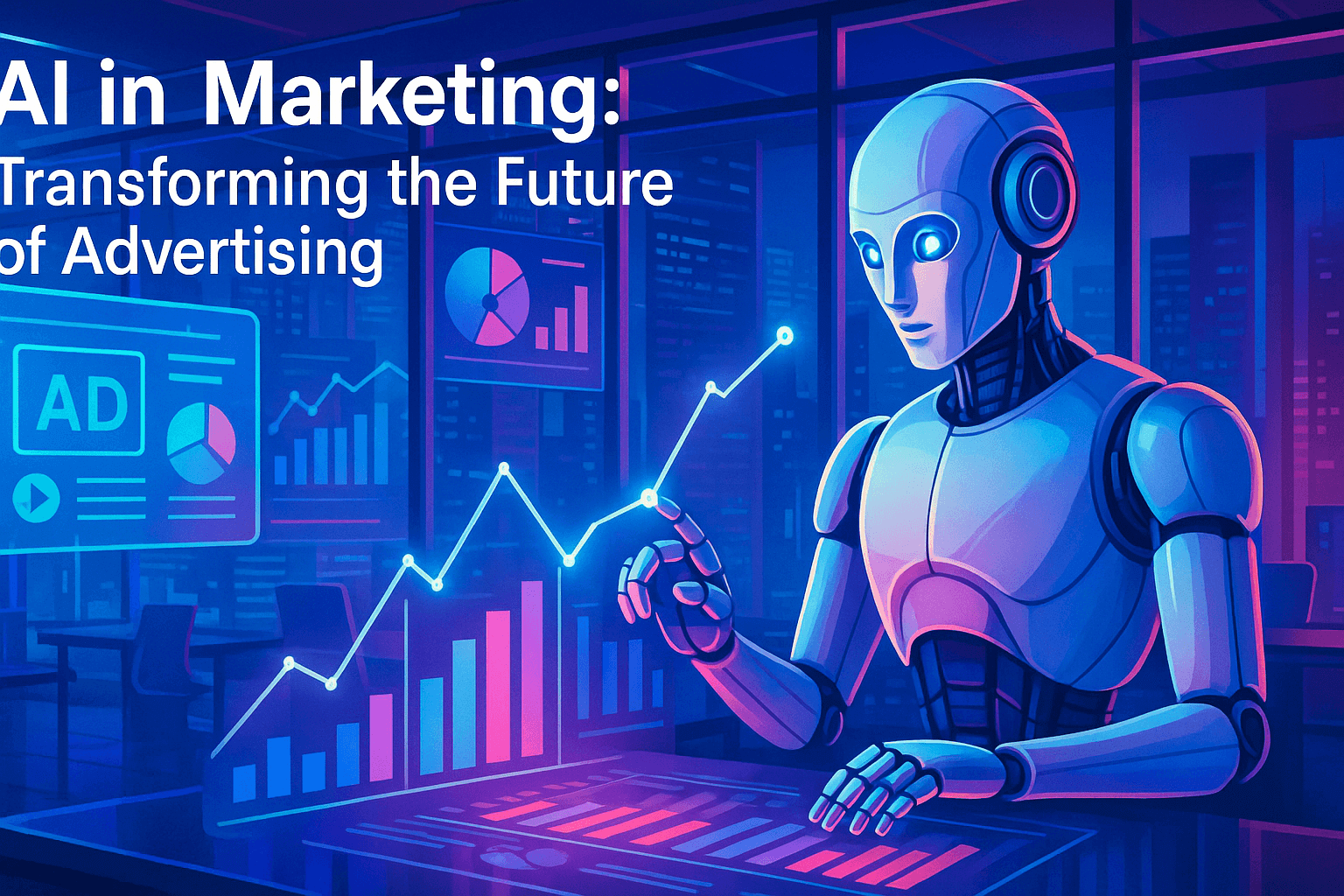Artificial Intelligence (AI) has been making waves in various industries, and one of the fields where it has been particularly impactful is marketing. In recent years, AI has revolutionized the way businesses approach customer engagement, content creation, and data analysis. It’s no longer a futuristic concept but a powerful tool that is already transforming the marketing landscape. The integration of AI allows marketers to optimize strategies, predict trends, personalize experiences, and make data-driven decisions, leading to increased efficiency and better customer satisfaction.
In this article, we will explore how AI is reshaping marketing, with a special focus on innovative platforms like marketowl.ai, which harness the power of artificial intelligence to elevate digital marketing campaigns.
1. The role of AI in marketing: a paradigm shift
AI is transforming marketing from a manual, reactive process to an automated, predictive, and personalized experience. Traditional marketing strategies relied heavily on human intuition and past data, while AI can analyze vast amounts of data in real time, offering insights that are beyond the scope of human capability.
AI technologies such as machine learning, natural language processing, and predictive analytics are being leveraged to enhance every stage of the marketing process. These technologies enable businesses to gain deep insights into customer behavior, automate repetitive tasks, and create more tailored marketing campaigns.
2. Personalization at scale
One of the most significant impacts of AI in marketing is its ability to enable personalization at scale. Personalized marketing is crucial for customer engagement, and AI makes it possible to deliver hyper-targeted content and recommendations based on customer preferences, purchase history, browsing habits, and social media activity.
AI algorithms can process this vast amount of data in real time and provide businesses with the ability to craft customized content for individual customers. Personalized email campaigns, product recommendations, and website content can be dynamically adjusted based on user behavior. For example, AI-powered platforms like marketowl.ai help marketers automate and personalize their campaigns by predicting customer behavior and optimizing content accordingly.
3. Chatbots and customer service automation
AI-powered chatbots have revolutionized the way businesses handle customer service. These bots use natural language processing (NLP) to communicate with customers, answer questions, and resolve issues without human intervention. Not only does this reduce operational costs, but it also improves the customer experience by providing instant, 24/7 support.
AI chatbots can be used to answer frequently asked questions, guide users through the sales process, or recommend products based on past purchases. They are an indispensable part of the marketing strategy, as they help businesses engage with customers more efficiently and increase customer satisfaction.
With AI-driven platforms like marketowl.ai, chatbots can be integrated into marketing campaigns to answer customer queries, direct them to relevant content, and even help with lead generation. This seamless integration of AI into customer service ensures businesses can maintain a strong relationship with their audience while saving time and resources.
4. Predictive analytics and data-driven decision making
Predictive analytics is one of the most powerful applications of AI in marketing. By analyzing historical data and identifying patterns, AI tools can forecast future trends, customer behavior, and potential market shifts. This empowers marketers to make more informed decisions, optimize campaigns, and adjust strategies in real time.
For example, AI can help businesses predict which products are likely to be popular in the future, identify the best times to launch a marketing campaign, or determine the optimal pricing strategies. By using AI to forecast demand, marketers can optimize their resources and increase ROI.
Platforms like marketowl.ai use predictive analytics to help businesses optimize their marketing efforts. By analyzing customer data, these AI tools can forecast the best course of action, whether it’s refining target audiences or choosing the most effective channels to reach potential customers.
5. Content creation and pptimization
Content is king in marketing, but creating high-quality content at scale can be challenging. AI has significantly simplified the content creation process by generating content ideas, writing articles, and even optimizing existing content for SEO. AI-powered tools can analyze trending topics, customer preferences, and search patterns to suggest content strategies that will resonate with the target audience.
Additionally, AI can optimize content for SEO by analyzing search engine algorithms and keyword trends. This helps marketers create content that is more likely to rank highly on search engines, increasing visibility and driving traffic to websites.
AI-powered platforms like marketowl.ai offer content optimization features that analyze competitor strategies and suggest ways to improve engagement. These insights help businesses stay competitive in the ever-changing digital landscape.
6. AI in social media marketing
Social media is an essential part of any modern marketing strategy, and AI plays a crucial role in optimizing social media campaigns. AI tools can analyze social media data to identify trends, track brand sentiment, and monitor audience interactions in real time. By leveraging AI, businesses can adjust their social media strategies quickly, ensuring that they remain relevant and responsive to customer needs.
AI also helps in identifying the most effective content types and posting schedules, ensuring that brands are reaching their target audience at the right time with the right message. Moreover, AI can help track the effectiveness of social media ads, enabling marketers to adjust campaigns for better performance.
Marketowl.ai provides a comprehensive suite of AI-driven tools to monitor and optimize social media campaigns. By analyzing engagement data and providing actionable insights, this platform helps businesses refine their social media marketing strategies and achieve better results.
7. The future of AI in marketing
The future of AI in marketing looks incredibly promising. As technology continues to evolve, AI will become even more integrated into marketing workflows, providing even greater levels of automation, personalization, and optimization.
In the coming years, we can expect AI to play a significant role in voice search optimization, virtual reality marketing, and even influencer marketing. AI-powered tools will continue to help businesses stay ahead of the competition by offering deeper insights, more advanced automation, and increasingly intelligent content creation.
Marketowl.ai is at the forefront of this evolution, constantly innovating and providing cutting-edge AI solutions for marketers. As AI technology becomes more sophisticated, platforms like marketowl.ai will continue to empower businesses to improve their marketing efforts and achieve better results.
Conclusion
Artificial intelligence is transforming the marketing industry in ways that were once unimaginable. From data analysis and predictive modeling to content creation and customer engagement, AI is helping businesses optimize their marketing strategies and deliver better experiences to customers.
Platforms like marketowl.ai are leading the charge in using AI to enhance marketing efforts, providing businesses with the tools they need to stay competitive in an increasingly digital world. As AI continues to evolve, it will become even more integral to the success of marketing campaigns, driving greater efficiencies and delivering more personalized, targeted content to customers. The future of marketing is AI-driven, and the time to embrace this technology is now.

Chase Ortiz is part of the team at PaigeSimple, where he takes care of all the advertising requests. With a sharp eye for detail, Chase makes sure every advertising opportunity is handled smoothly, helping the site grow and reach more people. His ability to manage these tasks efficiently makes him an important part of the team.

